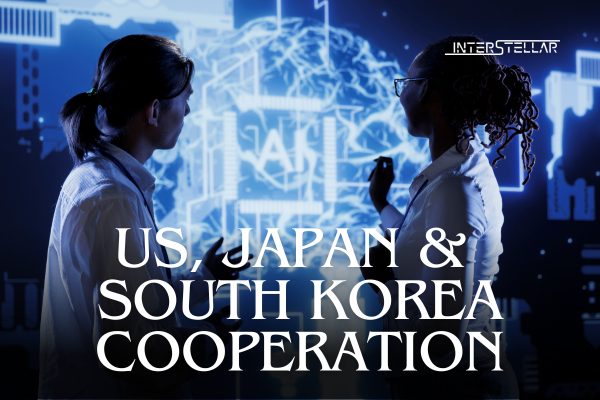US, Japan, and South Korea Pledge Cooperation on AI, Clean Energy, and Supply Chains
Commerce and trade ministers from the United States, Japan, and South Korea have pledged to collaborate on key strategic issues, including artificial intelligence (AI) safety, export controls, clean energy, and semiconductor supply chains.
Trilateral Meeting in Washington
The inaugural trilateral meeting, held in Washington, saw U.S. Commerce Secretary Gina Raimondo, Japanese Minister of Economy, Trade, and Industry Ken Saito, and South Korean Trade, Industry, and Energy Minister Ahn Duk-geun commit to enhancing cooperation. Raimondo emphasized the need for collaboration among the three leading economies to ensure global safety and security.
Strategic Cooperation Areas
The ministers agreed to focus their efforts on strategic areas to boost security and prosperity for their nations and the Indo-Pacific region. They highlighted the importance of strengthening supply chain resilience in key sectors, such as semiconductors and batteries. Additionally, they plan to address AI safety, critical minerals, cybersecurity, and technical standards.
Ken Saito underscored the commitment to creating a robust supply chain for strategic materials, ensuring that factors beyond price are fairly considered. This cooperative approach aims to foster a reliable and secure market.
Response to China’s Dominance
The meeting follows President Joe Biden’s recent vow to increase tariffs on critical minerals from China, part of Washington’s strategy to reduce China’s control over critical mineral supply chains. In March, a Commerce Department official revealed that the U.S. had requested allies to prevent domestic companies from servicing certain chipmaking tools for Chinese customers, aiming to curb China’s chipmaking capabilities.
Future of Industrial Cooperation
Ahn Duk-geun expressed optimism about the trilateral meeting, viewing it as a foundation for deepening industrial cooperation among the three countries. He stressed the importance of jointly responding to global risks to strengthen their industrial sectors.





